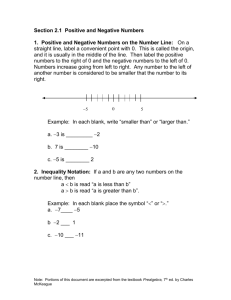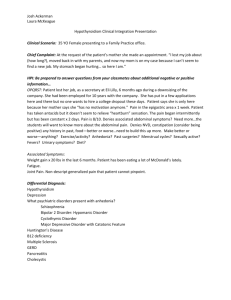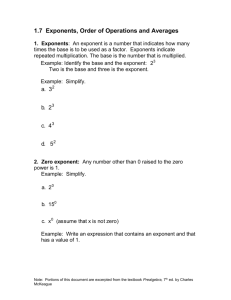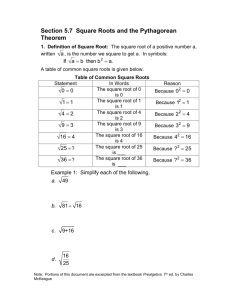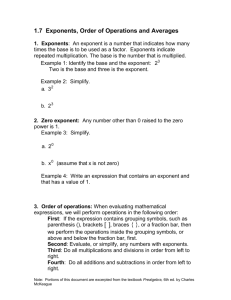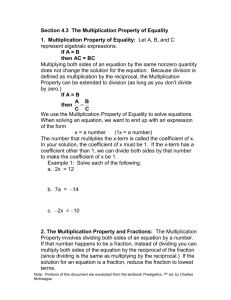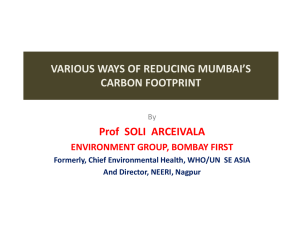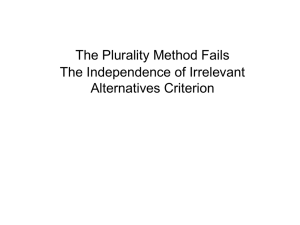John McKeague From: Jeff Dudgeon (jeffreydudgeon@hotmail
advertisement
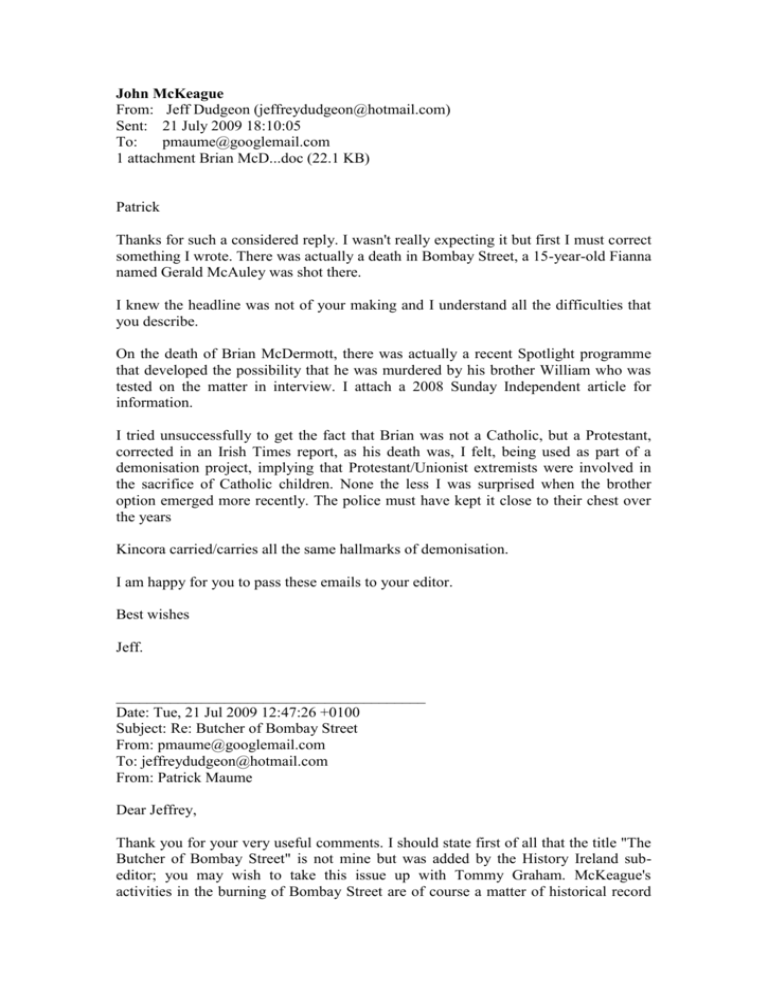
John McKeague From: Jeff Dudgeon (jeffreydudgeon@hotmail.com) Sent: 21 July 2009 18:10:05 To: pmaume@googlemail.com 1 attachment Brian McD...doc (22.1 KB) Patrick Thanks for such a considered reply. I wasn't really expecting it but first I must correct something I wrote. There was actually a death in Bombay Street, a 15-year-old Fianna named Gerald McAuley was shot there. I knew the headline was not of your making and I understand all the difficulties that you describe. On the death of Brian McDermott, there was actually a recent Spotlight programme that developed the possibility that he was murdered by his brother William who was tested on the matter in interview. I attach a 2008 Sunday Independent article for information. I tried unsuccessfully to get the fact that Brian was not a Catholic, but a Protestant, corrected in an Irish Times report, as his death was, I felt, being used as part of a demonisation project, implying that Protestant/Unionist extremists were involved in the sacrifice of Catholic children. None the less I was surprised when the brother option emerged more recently. The police must have kept it close to their chest over the years Kincora carried/carries all the same hallmarks of demonisation. I am happy for you to pass these emails to your editor. Best wishes Jeff. ________________________________________ Date: Tue, 21 Jul 2009 12:47:26 +0100 Subject: Re: Butcher of Bombay Street From: pmaume@googlemail.com To: jeffreydudgeon@hotmail.com From: Patrick Maume Dear Jeffrey, Thank you for your very useful comments. I should state first of all that the title "The Butcher of Bombay Street" is not mine but was added by the History Ireland subeditor; you may wish to take this issue up with Tommy Graham. McKeague's activities in the burning of Bombay Street are of course a matter of historical record and his subsequent justifications for it are of course matter of public record and quite bad enough without confusing things. It is about six years since I wrote the article, but I will try to respond to your comments as best I can: (1) Given the DIB's limited resources, there is necessarily a good deal of reliance on existing secondary literature, and I can well believe that this contains flaws. (For example, LOST LIVES, and I believe one or two other works which I have seen, refer to McKeague as an only child, which might be taken as having implications for the role of family dynamics in shaping his personality. When I looked up his newspaper obituaries, I found a photograph of his four sisters at the funeral, and a reference to a brother who died a year before his murder.) We do the best we can with the materials at hand. (2) I know that a great deal of rumour and speculation surrounds McKeague's activities and I tried to present these as allegations rather than statements of fact, though I admit the distinction may not always be clear to the casual reader (e.g. perhaps I should have said "suspected" or "accused" instead of "linked" in the reference to Kincora - the impression I got from Chris Moore's Kincora book was that McKeague was accused during the police investigation but was murdered before matters could be investigated further, and once he was dead the matter was not followed up. I assumed there was some basis for this given McKeague's previous links with William McGrath; I am really not able to assess the basis for Moore's claims, which presumably derived from the police). Being a source for the security forces could of course cover a wide variety of contacts, ranging from deep to casual. Again there was a necessary reliance on journalistic sources. I agree that some of the allegations mentioned seem overblown, such as the suggestion that McKeague was really killed by or on behalf of the security forces ("it is sometimes suggested" implies a greater degree of distance than "it is alleged"). The reason why I mentioned them at all is that the existence of these allegations, whether true or false, have become part of McKeague's history, and to pass them over without a mention might lead to accusations that we were somehow participating in an alleged cover-up. I tried to strike a balance, which may not always have been done correctly. (In retrospect I probably should have mentioned McKeague's sexuality as a reason for his "outsider" status within the loyalist community - but that is not my territory and I should have ended with a reminder that McKeague has been the subject of all sorts of rumours, many of doubtful authenticity, and not all the items in this "black legend" are necessarily correct. We were on a strict word-limit at that stage, though we were given more space later.) You are right that I was thinking of the McDermott murder in particular, given that several works directly accused McKeague of it; I was not aware of the claim that the boy was in fact killed by a family member, though I seem to remember seeing a newspaper reference to it some time ago (long after I had written the entry). Given that the Red Hand Commando which McKeague founded committed several murders I assumed he had some responsibility for these, though again I don't know the inside story; maybe he was just a figurehead or was removed before they took place. The DIB will have scope for post-publication revision of the online version of entries. Would you have any objection to my passing your e-mail on to James McGuire, to be kept on file so that note can be taken of your comments in any revision? (I will not send it on until I hear form you). All I can say is that I try to do the best justice I can to the subjects of my entries, and if there are any shortcomings in my treatment I regret them. Yours sincerely, Patrick Maume Dear Patrick I read your interesting, 'brief life' of John McKeague in this issue of History Ireland under the slightly misleading title of 'Butcher of Bombay Street,' and learned some things in the process. Nobody was actually butchered in Bombay Street but my reason for writing is otherwise - the mention of Kincora. To my knowledge, there was no evidence linking McKeague to the abuse at Kincora, simply presumption that because he was gay, a paramilitary loyalist and lived in East Belfast he must have been. This was somewhat similar to the story that the murder of the Protestant boy Brian McDermott was also connected to Kincora and McKeague. (The police think Brian's brother murdered him.) These stories were generated by conspiracists and nationalist tabloids in the main, and they of course included Lord Mountbatten and Sir Maurice Oldfield in the ranks of the habitués of that working boys' hostel. Ultimately the whole farrago of speculative nonsense resulted in a policy by the then EHSSB of not employing homosexuals in caring roles. What it would be fair to say is that McKeague was well known to be gay and interested in teenagers. In my time on the gay scene, if pre-Troubles, he was also noticeably and to me worryingly religious. What impact his sexual orientation had on his paramilitarism is for others to evidence. I was not aware he had been "an informer to the security services" but don't see how or why that led to his murder (by the INLA) as "part of an official cover-up". Danny Morrison told me he briefly shared a cell with him and learned something of loyalism and homosexuality in the process. Best Jeff
